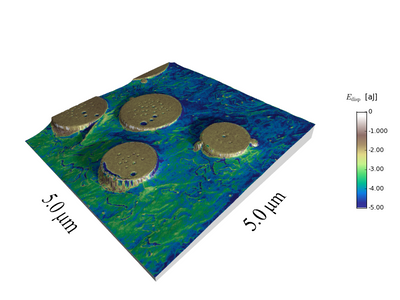The course is designed for students from a wide variety of educational backgrounds, from Physics, Chemistry and Biology, who would like to learn about the technical details of how SPM's work, and the possibilities and pitfalls in interpreting the images that SPM's produce. We will look in detail at some of the many different modes of SPM usage, with particular emphasis on Atomic Force Microscopy (AFM) and its many variations.
- SPM overview
- Scanners, Sensors, Feedback and Control
- Cantilevers and Tips, Force Measurements
- Fluctuations, Noise and Fundamental Limits
- Surface Forces, Adhesion and Friction
- AFM Colloidal Probe Technique
- Nonlinear Cantilever Dynamics
- SPM Application in Industry
